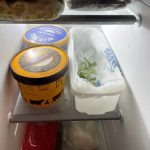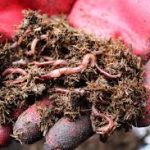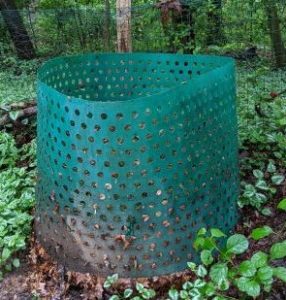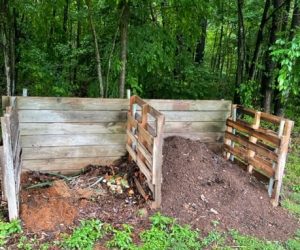8 Tips from Seasonal Roots Market Managers
May 29th is “National Learn About Composting Day.” According to National Today, composting is an environmentally safe fertilizer and it can help you save water, energy, fuel, and money! Composting helps keep biodegradable waste from going to land fills and reduces carbon emissions. Link to National Today available here.
We all want to do what we can to conserve natural resources and reduce our carbon footprint. A Harris Interactive Poll survey result shows that 67% of those who are not composting now have an interest in composting. But, many are concerned it might be too difficult or time consuming.
The reality is that there are so many products out there marketing the “best” way to compost – making the practice seem both expensive and complicated. It’s clear that there is no one-size-fits-all solution and what works in one home may not work in another.
Rather than provide a rehash of established expertise on composting, we thought we would share some tips from our team. We love our team of insightful Market Managers for all that they do to support our members, their creativity in the kitchen, and it turns out many of them know a lot about composting! We recently surveyed our Market Managers asking for their words of wisdom and practical advice. In no particular order, read on for a few ideas.
#1: Take Extra Precautions if you Have Furry or Feathered Friends!

If you keep any sort of livestock or outdoor pets, be careful about what you put in your compost! There are certain foods that can be deadly to animals! For example, if you grow tomatoes, don’t throw the old plants in open compost at the end of the season. Tomatoes are in the nightshade family and the leaves and stalks can be deadly to certain animals! Uncooked potatoes and their skins also fall into this category. There are plenty of other veggies that have these issues. One of our market managers had to deal with a surgery for her Pup that decided to ingest the corn cobs out of the compost. Thankfully, her furry friend recovered well.
#2: The Freezer is Your Friend

I keep my kitchen compost scraps in a container in the freezer. That way they never stink or gather fruit flies. When the container gets full, I put the frozen chunk in the outdoor compost pile. I always have two piles going. One to add to, while the other is ready to use.
#3: Have Patience as You Find a Routine that Works Best for You
Have Patience. Composting requires some new routines and you won’t necessarily find the perfect solution on day 1. I have old takeout containers with lids sitting next to the sink – every night they are taken out and dumped in the compost bin(s). If I have a lot (say shucking corn) it goes directly in a paper bag and the entire thing is tossed in one of the bins. Have a good mix of greens and browns. Turning a bin is not required but things will take longer to decompose.
#4: A Wormy Solution

WORMS! Worm composting (a.k.a. Vermicomposting) is a great option. Making sure you have good worms to make the best compost is critical. I actually purchased worms at the suggestion of a compost farmer from a specific site called Jim’s Worm Farm. Those little guys eat their way through everything in record time!
#5: Get Scrappy or Crafty
 We use a stainless steel container, like the ones that hold meat/veggie/toppings at Subway or other restaurants. My husband built a lovely wooden box to keep it in. It sits on our countertop, and we dump it as it fills up. Then each time we cut the grass we add one bag of clippings. In the fall we add one bag of dead leaves. We don’t use it for gardening, but it helps keep waste out of the landfill.
We use a stainless steel container, like the ones that hold meat/veggie/toppings at Subway or other restaurants. My husband built a lovely wooden box to keep it in. It sits on our countertop, and we dump it as it fills up. Then each time we cut the grass we add one bag of clippings. In the fall we add one bag of dead leaves. We don’t use it for gardening, but it helps keep waste out of the landfill.
#6: Involve Your Kids
When I was growing up we always composted. It was a simple system that involved a recycled milk carton and a dumping spot in the backyard. But, as an adult I somehow forgot all about it. However, when my kids got to elementary school, I realized it was an opportunity to bring the simple practice back. I involve my kids in the composting and they also help me with gardening using some of the soil from our compost pile. Some additional tips for composting with kids are available at Gardening Know How here.
#7: Keep it Simple
We use an old metal mixing bowl on the kitchen counter for our veggie and fruit waste, used tea bags, coffee grounds, and eggshells. We empty it into our compost bin in the yard, along with any grass clippings and other yard waste. It’s a great way to help the planet, plus our yard.

#8: Look for a Pick Up or Drop Off Program
A few resources we like for more information:
https://www.npr.org/2020/04/07/828918397/how-to-compost-at-home
https://www.planetforward.org/idea/compost-myths-debunk
About Seasonal Roots
Since 2011, Seasonal Roots’ online farmers market has connected Virginia families with local family farmers who use sustainable, humane practices. Our neighborhood market managers – who believe in living better through scrumptious, healthy eating, being kind to animals, protecting the environment, and spreading joy – home-deliver freshly harvested produce, pastured eggs, grass fed dairy and meat, plus artisan fare. We empower our members to eat better and live better with more nutritious, flavorful food that’s good for us and good for the planet. More info at seasonalroots.com.